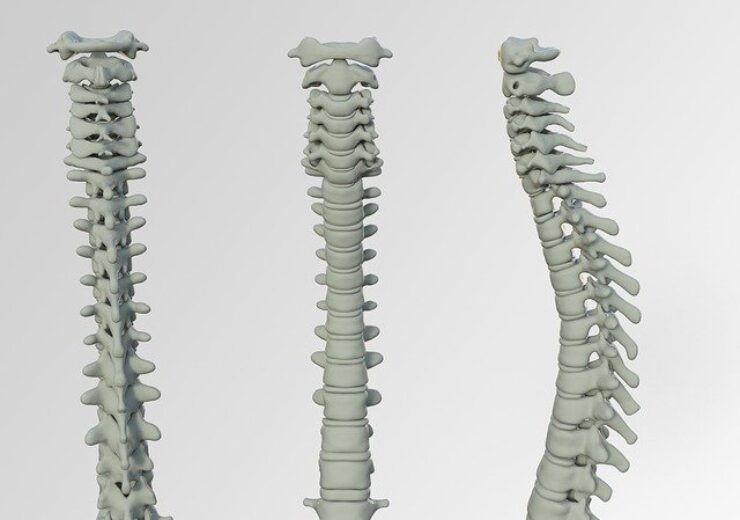Designed for posterior interbody fusion, the implant is offered in different sizes and anatomical designs to accommodate a wide range of patient anatomy

DeGen Medical has introduced new 3D-printed spinal implant. (Credit: kalhh from Pixabay)
Medical device development company DeGen Medical has introduced its 3D-printed porous titanium implant called Impulse AM for posterior interbody fusion.
Impulse AM is claimed to be the first 3D-printed spinal implant to use a different type of titanium material known as Puri-Ti with an advanced manufacturing process.
DeGen stated that it has worked for three years to perfect the laser parameters and chemistry to create the Puri-Ti material.
The company is offering the Impulse AM in different sizes and anatomical designs to accommodate a wide range of patient anatomy.
DeGen Medical CEO and founder Craig Black said: “After researching the traditional material and post processing methods, we identified a number of pitfalls that can cause sterility issues and device breakage.
“We brought the entire process in house while creating our own unique material composition and building method.
“As a result, we now have a clear pathway to deliver patient specific implants with minimal lead time at a reasonable cost.”
Impulse AM is said to be the first interbody device in the company’s 3D printed Puri-Ti portfolio. It is designed to offer implants and instrumentation for PLIF and TLIF fusion procedures.
The company is engaged in the development of advanced products for the treatment of complex spinal disorders.
Its product portfolio consists of Augmenta VAD device, Cyclops anterior cervical plate system, E3 MIS pedicle screw system, F1 MPS pedicle screw system and others.
In September 2019, DeGen Medical secured the FDA clearance for its F1 MPS Modular Pedicle Screw System for JOUST Minimally Invasive Surgery (MIS) procedure.
The JOUST MIS is a modular pedicle screw with cobalt-chrome alloy head for percutaneous procedures.
